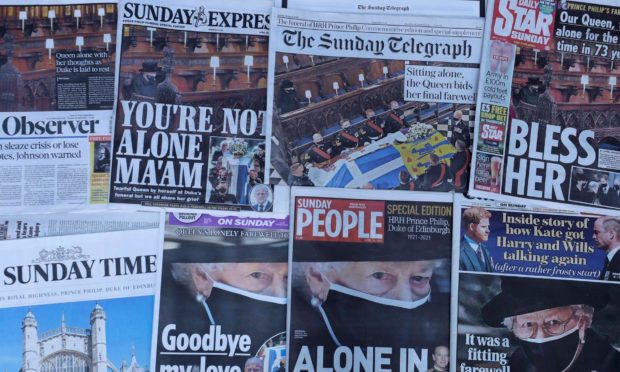On today’s Election Hub Live we discussed people’s trust in the media ahead of the May 6 Holyrood election.
A number of voters in Dundee shared their thoughts on the media, and head of politics David Mac Dougall spoke to Dr Dominic Hinde, a lecturer in the sociology of media at Queen Margaret University.
Dundee voters have raised their concerns about bias in the media and the media’s ability to influence and persuade people on political matters.
Scott Campbell said: “I do tend to find mainstream media is very biased.
“There is very little unbias (sic) within media at the moment.
“They take a certain stance and that is that, there is no listening to debate or resolution within (the) current climate.”
Sarah said: “The media is a tool that should be used appropriately when it comes to an election because people can be really easily influenced by what they see on television and in newspapers.
“It can really change people’s opinions if an authority is speaking.”
Others on the streets of Dundee did, however, say the media’s influence over voters could be used for good, as it can help people decide for themselves or change their opinion for the better.
Clyde said: “I think I am influenced by the media, but it is a positive thing.
“We are really lucky in the UK, especially in Scotland.
“It allows you to form your own opinions and I am happy to say I am influenced by the left-wing media, but I also feel like I have just as much access to the right-wing media, so I don’t feel entirely forced in one direction.
“I feel like it is a conscious decision.”
‘I don’t think people hate the media’
Dr Dominic Hinde, who teaches media sociology, spoke on Election Hub Live about people’s trust in the media across Scotland and the UK.
He said: “I don’t think people hate the media, but I think what we have seen in the last 10 years is people starting to consume a wider range of media and being challenged on the way they previously thought about things.
“In the 2014 (independence) referendum what we saw was the growth of extremely well-read alternative media through blog sites – the two best known are Wings Over Scotland and a blog by Craig Murray, which attracted controversy for the information he published during the Salmond assault trial.
“A lot of people have found a way to consume media that corresponds to their views.
“There are issues – these are not regulated and not run by professional journalists.
“It is a very, very complex landscape and a lot of people are looking for things out there but are not necessarily of a very high quality.”
Dr Hinde also spoke about the rising distrust in “mainstream” media such as the BBC, saying the broadcaster was “stuck between a rock and a hard place trying to please everyone” during the 2014 independence referendum.
He said a “huge number” of the Yes movement started to distrust the BBC’s news coverage, which spread to established newspapers, and created the idea people need to go to “alternative news sources” to find answers.
How do we boost overall trust in the UK media?
Overall, trust in the media in the UK sits at just 28%, which is low compared to some other European countries – trust in the media in Finland and Portugal, for example, is the highest in the world, at 56%.
Dr Hinde added: “Trust is very high in the Nordic countries on most issues.
“In Britain we have a history of a politically divided media.
“A lot of people don’t see behind the scenes and don’t realise good media costs money.
“A solution is to have a more proactive government policy to value and support the media, like there is in the Nordic countries.”
Election Hub Live is on every weekday afternoon at 2pm in the run-up to the May 6 election.
